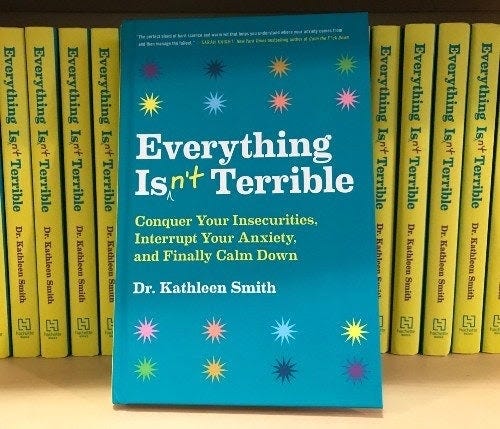The Space Between Changing Each Other
Learning to live outside of relationship pressure
Most of the time, if we’re not paying attention, we’re changing other people, or letting them change us. We’re saying yes to ridiculous asks. Trying to teach our family members to behave better. Attempting to make others happy to keep things steady.
This is hardly dysfunctional, when humans are built to harmonize, to cooperate in groups. In any relationship, at least one person has to adjust a little to keep things calm. But how much? And at what cost?
When one person is pressuring another to be different, they might end up overfunctioning for them. When both people are trying to change each other, conflict can erupt. If you’re unwilling to conform to relationship pressure, you might begin to distance, unable to hang in there and say, “No, I don’t think I’ll do that.”
Making decisions that come from one’s best thinking, not relationship pressure, is no easy thing. But this is how we build relationships whether neither person greatly eclipses the other (see header image).
I spend a significant amount of time thinking about this conundrum with people in therapy. Examples can look like:
I don’t want to tell my partner how to do everything, but I also don’t want to take on all the responsibility.
I don’t want to do my kid’s homework, but what will happen if I give up?
I don’t want to teach my boyfriend how to be more romantic, but I’m unhappy with the way things are.
I don’t want to do everything in this messy organization, but I also can’t just go along with the chaos.
I don’t want my boss to email me at 8pm, but what will happen if I don’t answer?
It’s so easy to be swept along in the anxiety of the moment. If everyone at work is acting like something is an emergency, it’s hard to say, “I don’t think so.” It’s much easier to go along with impossible deadlines, or fix other people’s problems, and then vent with people to feel calmer. Have you ever been caught in that cycle?
I talked with a woman once (let’s call her Sarah) who was very frustrated with her mother’s lack of involvement with her grandchildren. Sarah flipped back and forth in her responses, sometimes trying to teach her mother how to be a good grandmother, and other times giving up and distancing from her.
After a lot of thinking, Sarah was able to tell her mother, “It’s important to me that you have a strong relationship with your grandchildren. How you do that is up to you.”
This didn’t transform her mother into Grandma of the Year. But two things happened. Sarah made her thinking clear to her mother. And her mother started focusing on who she wanted to be in all these relationships. Not what her daughter wanted her to be.
When one or both people are thinking, not simply reacting to relationship pressure, there is usually more flexibility in the relationship. There is more freedom to be one’s self, and to be responsible to one’s relationships.
Does that mean that people will always step up or agree? Of course not.
How do you find the space between trying to changing others, and letting them change you? I think it it can look like:
Trying to change your part in the system rather than the whole system.
Paying attention to the patterns we use when faced with pressure (i.e. distancing, triangles).
Letting others know what they can expect from you.
Letting others know how you will respond when they behave poorly.
Defining your thinking to others while making space for theirs.
Being curious about what other people think are the challenges in the family/organization/group.
What would it look like for you to respond to challenges with more self? To allow others to do the same?
Maybe it looks like not answering emails after 6pm, rather than trying to teach the whole office not to send them. Maybe it looks like asking someone how they’d like to be more responsible, rather than handing them a long list. Perhaps you’ll say, “No, I can’t do that,” instead of saying yes and then complaining to others.
These moves are made not to change others. They are made because a person wants their actions, their life, to align with their best thinking.
When we take a little bit of the pressure off of our relationships, everyone benefits. Our feelings and functioning become less dependent on people responding to us in a certain way. And we can enjoy our relationships more, because there is a little more freedom to be ourselves.
News from Kathleen
Is there really such a thing as a calm parent? I chatted about managing parenting anxiety with Dr. Jenny Brown of the Parent Hope Project on her podcast. Here’s the Apple podcast and Spotify links.
Slate’s movie critic Dana Stevens recommended my book Everything Isn’t Terrible on the Slate Culture Gabfest podcast. Thanks, Dana!
Want to read more of my writing? Get my book, Everything Isn't Terrible, from Amazon, Barnes and Noble, Indiebound, or your local bookstore (best option).




This one is gold.
Sometimes the most helpful thing we can do is actually the simplest: say less, do less, and just witness someone. Acknowledge what they’re sharing, “Yeah, that really sucks” and leave room for them to decide if they want guidance, support, or change. Instead of assuming relationship is an automatic invitation to intervene, we make space for them to come to us when they’re ready.
There’s a quiet power in letting people learn for themselves!